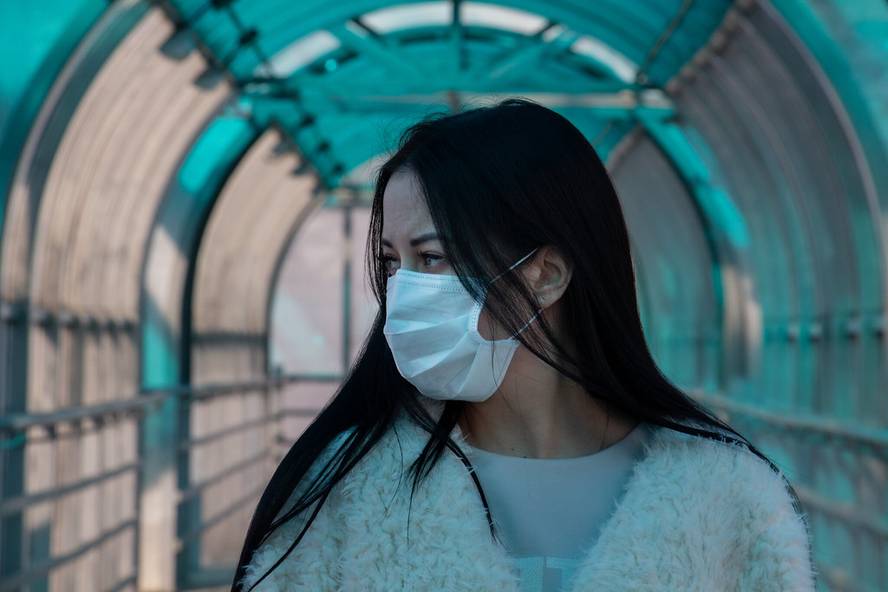Pandemic learning
2022/09/01 Zubia, Felix - Medikua | Basaras, Miren - Mikrobiologiako Irakasle Titularra

The first signs of the ailment, later called COVID-19, were detected in China at the end of 2019. On 5 January 2020, the World Health Organization (WHO) published its first declaration on the new virus. On 12 January 2020, he published the genetic sequence of the virus and on 30 he described it as a public health emergency of international importance. By then, there were cases outside China. March 11 declared it a pandemic.
Since then, the situation has changed a lot, especially thanks to vaccines. But the syndemia is not over and there is clearly a risk that there will be another one in the future. Are we more prepared to face it than before? What have we learned during this time? Have you left us COVID-19 lessons?
We bring the reflections of two professionals who have worked in the front line during these three years:
“The pandemic has caught us with weak public health”
Felix Zubia Olaskoaga
ICU physician (Osakidetza)
From 2020 to the present, the pandemic that still exists among us has left us learning, although we would not like to receive many. It's hard to uncover everyone in such a short time, and much more. This is, in my view, the most important.
There have always been and will be pandemics or pests. They are as old as the human being, although modern people in rich countries believe we were free from them. Most pandemics are zoonoses, and if we continue to destroy and exploit animal habitats, the risk of new pandemics will be higher.
Public health, the part of health sciences that deals with the health of a society, is essential to deal with a pandemic. Ours was very weakened by believing that we were free from infectious diseases and with the intention of cutting budgets. Will we learn to keep public health parts firm?
The strained public health system
Public health, a health system that we must all care for in an equal and adequate way, has been a system that has prevented many deaths. The public health system cannot be at the border, always tense: if it increases the tension it supports, it breaks.
To prevent the spread of an infectious disease, drastic measures are needed that affect our lifestyle. This requires the intervention of the authorities, legislation and the proper attitude of the citizens. The coronavirus has the characteristics of testing our values: we can get infected without symptoms or with very few symptoms; its mortality is low in percentage terms, but it is very contagious, so it causes many deaths in absolute numbers; and those who die are the weakest, especially the elderly. I believe that our values have failed. I am convinced that if the dead were children or younger the answer would be very different.
Clear communication, essential
Communication is an effective policy when a pandemic occurs. This pandemic has had great news and revolts every day, but with few clear and concise messages. In the midst of the chaos that has occurred, it is no wonder that the citizen feels lost, and in order to combat it, it is necessary to develop adequate and measured communication.
Decent research system
When a pandemic occurs, scientific knowledge is usually initially reduced and then expanded. This scientific knowledge will allow the development of appropriate measures, from prevention to treatment. Under what conditions do we have research and researchers? If we have signs of shame, we should multiply the research budget by dignified posts. The era of the fellows should have ended.
In the case of the coronavirus, what we've learned about the means of transmission has been very significant. At first, the emphasis was on big drops and contact, until we realized the influence of aerosols. But these have not been properly transferred and disseminated to citizens' measures. We've missed a great opportunity to advance air quality and ventilation.
On the positive side, knowledge has never developed so much, and so fast. We have had very good models of collaboration, which we should also maintain for the future.
Vaccines have helped us cope with the pandemic the most, although some people do not want to see it. The speed with which they have developed, despite some ugly commercial interests, has been impressive.
So far, in my opinion and from the health point of view, the lessons left by the pandemic. As the saying goes, forgive bad words and keep them in mind.
"Protocols for a pandemic need to be updated"
Look at Basaras Ibarzabal
Microbiologist (UPV)
For years, health scientists have feared there might be a pandemic because the risk was there. We've seen them and read them in movies, books, etc. Unfortunately, we have also had to suffer at this last moment, in this case by a new coronavirus. Over the course of these three years we have learned many things, but at the moment, many others are unknown.
The force of basic science
We've often heard that without science, there's no future. R & D & I (research, development and innovation) is key to finding solutions as soon as possible to any problem, including public health. All of this we've seen and learned in this pandemic.
Rapid virus identification led to the development of rapid diagnostic tests. At the same time, the means used in the prevention of infection and the research carried out have made new drugs known. Among them, there is no doubt that vaccines (both RNA and other types) have been essential for coping with this pandemic. It is estimated that 20 million deaths were averted in the first year of vaccination. But the rapid integration of the entire world population has led to preventable deaths.
Advances have also been made in the field of anti-virus programs: although there are currently no miracle anti-virus programs, drugs are available to treat patients with severe diseases.
Disinformation and disclosure
Today, social networks have a strong force in any area, including health. Although we know nothing about a subject, anyone can write anything. This has often led to misinformation in this pandemic. Great efforts must be made to eliminate these false news and to transmit the spread to society. The measures to be taken, because of their essential nature, must be sufficiently explained. For example, the use of the mask has undergone great fluctuations, both on occasion and in the way it is used. It has been shown that any mask does not stop the transmission of the virus.
On the other hand, when the transmission of the virus is high, there is a greater likelihood of mutations and more worrying recombinations, with new variants appearing. Thus, the biological pressure exerted on the virus is capable of reducing the presence of fugitive mutants. It seems that this has not been clearly disclosed, because the transmission of the virus remains important.
International cooperation efforts
We have really learned that microorganisms, including viruses, do not respect geographical borders. A problem anywhere in the world can become a global headache in a short time. All this is necessary to find repositories, know modes of transmission, etc.
Several international organizations developed protocols to explain how to respond to a pandemic. But if those protocols aren't updated, they don't reach every corner of the world, or countries ignore, they're useless.
The start date of the pandemic is known, but not its completion. At the moment we are in the pandemic, something better than in previous years, but we lack the virus to become endemic, because at the moment there are too many transmissions, sick people and deaths.
We have to be more humble. Ultimately, in the world, there are millions of beings smaller than us, and they also have something to say, because concern about emerging infections is real.

Gai honi buruzko eduki gehiago
Elhuyarrek garatutako teknologia




_article_big.jpg)

